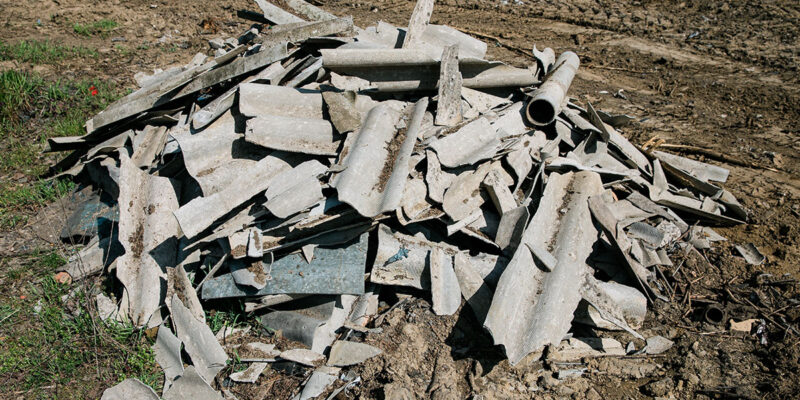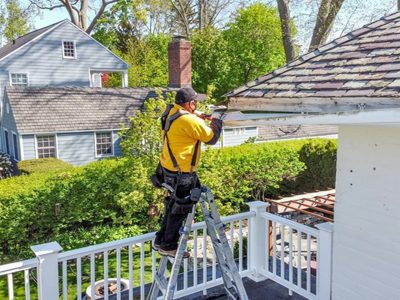Health Risks Associated with Asbestos
Asbestos exposure can lead to serious health problems for veterans. Some of the main risks include:
- Lung Cancer: A major risk for those who have been exposed to asbestos.
- Mesothelioma: A rare but aggressive cancer linked directly to asbestos.
- Asbestosis: A chronic lung disease caused by inhaling asbestos fibers, leading to breathing difficulties.
Common Sources of Asbestos in Military Housing
Veterans may encounter asbestos in various places within military housing, such as:
- Insulation: Often found in walls, ceilings, and pipes.
- Flooring Materials: Vinyl tiles and adhesives may contain asbestos.
- Roofing and Siding: Some older buildings used asbestos in these materials.
Long-Term Effects of Asbestos Exposure
The long-term effects of asbestos exposure can be severe and may include:
- Chronic Respiratory Issues: Difficulty breathing and persistent cough.
- Increased Risk of Other Cancers: Besides lung cancer, exposure can lead to other types of cancer.
- Reduced Quality of Life: Ongoing health issues can affect daily activities and overall well-being.
Identifying Asbestos in Your Home
Signs of Asbestos Presence
Identifying asbestos in a home can be challenging, especially since it is often hidden in building materials. Here are some signs that may indicate the presence of asbestos:
- Age of the Home: Homes built before the 1980s are more likely to contain asbestos.
- Damaged Materials: Look for crumbling or damaged insulation, tiles, or ceilings.
- Unusual Textures: Textured ceilings or walls may contain asbestos.
Professional Asbestos Inspection
If there are concerns about asbestos, hiring a professional inspector is a wise choice. They can:
- Conduct a thorough examination of the property.
- Collect samples for laboratory testing.
- Provide a detailed report on the findings.
DIY Asbestos Testing Kits
For those who prefer a hands-on approach, DIY testing kits are available. These kits typically include:
- Sample Collection Tools: Items to safely collect suspected asbestos materials.
- Instructions: Clear guidelines on how to collect and send samples.
- Lab Analysis: Information on where to send samples for testing.
Identifying asbestos is crucial for ensuring safety in homes, especially for veterans who may have been exposed in military housing.
Legal Rights of Veterans Exposed to Asbestos
Veterans who have been exposed to asbestos have specific legal rights that can help them seek justice and compensation. Understanding these rights is crucial for those affected. Here are some key points to consider:
Understanding Your Legal Entitlements
- Right to Compensation: Veterans may be entitled to financial compensation for health issues caused by asbestos exposure.
- Access to VA Benefits: Many veterans can access benefits through the Department of Veterans Affairs (VA) for asbestos-related illnesses.
- Legal Protections: There are laws in place that protect veterans from discrimination when filing claims related to asbestos exposure.
Filing a Claim for Asbestos Exposure
- Gather Evidence: Collect medical records and documents that show the connection between asbestos exposure and health problems.
- Consult a Lawyer: Seek legal advice from a lawyer who specializes in asbestos cases to understand the best approach.
- Submit Your Claim: File your claim with the appropriate agency, ensuring all required information is included.
Legal Support for Veterans
- Veteran Advocacy Groups: Many organizations offer support and guidance for veterans navigating the legal process.
- Pro Bono Legal Services: Some lawyers provide free legal help to veterans who cannot afford representation.
- Support Networks: Joining support groups can connect veterans with others who have faced similar challenges, providing emotional and legal support.
Types of Legal Claims for Asbestos Exposure
Veterans who have been exposed to asbestos may have several legal options available to them. Understanding these options is crucial for seeking justice and compensation. The main types of legal claims include:
Personal Injury Claims
- Definition: These claims are filed by individuals who have suffered health issues due to asbestos exposure.
- Purpose: They aim to recover damages for medical expenses, lost wages, and pain and suffering.
- Process: Veterans must prove that their exposure to asbestos directly caused their health problems.
Wrongful Death Claims
- Definition: These claims are filed by the family members of veterans who have died due to asbestos-related diseases.
- Purpose: They seek compensation for the loss of a loved one, including funeral costs and loss of income.
- Process: Families must demonstrate that the death was a result of asbestos exposure during military service.
VA Disability Claims
- Definition: These claims are made to the Department of Veterans Affairs for benefits related to health issues caused by asbestos exposure.
- Purpose: They provide financial support to veterans who are unable to work due to their health conditions.
- Process: Veterans need to provide medical evidence linking their health issues to asbestos exposure during their service.
Choosing the Right Legal Representation
When veterans seek legal help for asbestos exposure, selecting the right lawyer is crucial. The right legal representation can make a significant difference in the outcome of a case. Here are some key points to consider:
Qualities to Look for in an Asbestos Lawyer
- Experience: Look for a lawyer who has handled asbestos cases before. Their knowledge of the laws and procedures can be very helpful.
- Reputation: Research the lawyer’s reputation. Check reviews and ask for references to ensure they are trustworthy.
- Communication Skills: A good lawyer should be able to explain complex legal terms in simple language. They should also be responsive to your questions and concerns.
Questions to Ask Potential Lawyers
- What is your experience with asbestos cases?
- How do you plan to approach my case?
- What are your fees, and how are they structured?
Benefits of Specialized Legal Firms
- Focused Expertise: Specialized firms often have a deeper understanding of asbestos laws and regulations.
- Resources: They may have access to experts and resources that can strengthen your case.
- Support Network: These firms often have connections with support groups and organizations that can assist veterans.
Navigating the VA Claims Process
Steps to File a VA Claim
Filing a claim with the VA can seem overwhelming, but breaking it down into steps can help:
- Gather Necessary Documents: Collect all relevant paperwork, including service records and medical evidence.
- Complete the Application: Fill out the VA Form 21-526EZ, which is the application for disability compensation.
- Submit Your Claim: Send your completed application and documents to the VA either online, by mail, or in person.
Required Documentation for VA Claims
To support a claim, veterans need to provide specific documents:
- Service Records: Proof of military service and any related documentation.
- Medical Records: Documentation of health issues linked to asbestos exposure.
- Personal Statements: Written accounts detailing how asbestos exposure has affected their lives.
Common Challenges in the VA Claims Process
Veterans may face several hurdles when navigating the claims process:
- Complex Paperwork: The forms and requirements can be confusing.
- Long Wait Times: Processing claims can take a significant amount of time.
- Denials: Some claims may be denied due to insufficient evidence or documentation.
Compensation Available for Asbestos Exposure
Types of Compensation
Veterans who have been exposed to asbestos may be eligible for various forms of compensation, including:
- Medical Expenses: Coverage for treatments related to asbestos-related diseases.
- Lost Wages: Compensation for income lost due to illness or inability to work.
- Pain and Suffering: Financial support for emotional distress and physical pain caused by exposure.
Factors Affecting Compensation Amounts
Several factors can influence how much compensation a veteran may receive:
- Severity of Illness: More serious health issues typically lead to higher compensation.
- Duration of Exposure: Longer exposure to asbestos can result in greater compensation.
- Documentation Quality: Well-documented medical records and evidence of exposure can enhance claims.
How to Maximize Your Compensation
To ensure the best possible outcome, veterans should consider the following steps:
- Gather Evidence: Collect all medical records and documents related to asbestos exposure.
- Consult Legal Experts: Seek advice from lawyers who specialize in asbestos claims.
- Stay Informed: Keep up with changes in laws and regulations that may affect compensation.
Resources and Support for Affected Veterans
Veterans who have been affected by asbestos exposure have access to various resources and support systems designed to assist them. These resources can help veterans navigate their challenges and find the help they need.
Veteran Support Groups
- Peer Support: Many veterans find comfort in connecting with others who have faced similar issues. Support groups provide a safe space to share experiences and advice.
- Emotional Assistance: These groups often offer emotional support, helping veterans cope with the psychological effects of asbestos exposure.
- Information Sharing: Members can exchange valuable information about legal rights and health resources.
Government Resources
- VA Health Care: The Department of Veterans Affairs (VA) offers health care services specifically for veterans affected by asbestos. This includes screenings and treatments for related health issues.
- Compensation Programs: The VA provides various compensation programs for veterans who have suffered due to asbestos exposure, ensuring they receive financial support.
- Educational Resources: The government also offers educational materials to help veterans understand their rights and the steps they can take.
Non-Profit Organizations Offering Assistance
- Advocacy Groups: Several non-profit organizations advocate for veterans’ rights, providing legal assistance and guidance on filing claims.
- Health Services: Some non-profits focus on health services, offering free or low-cost medical care for veterans affected by asbestos.
- Financial Aid: These organizations may also provide financial assistance to help veterans cover medical expenses related to asbestos exposure.
Preventing Asbestos Exposure in Military Housing
Asbestos Abatement Procedures
To keep military housing safe from asbestos, it is important to follow specific steps:
- Identify areas where asbestos might be present, such as older buildings or materials.
- Hire professionals who are trained in asbestos removal to handle any dangerous materials.
- Seal off the area during removal to prevent asbestos fibers from spreading.
Safety Measures for Military Families
Military families can take several actions to protect themselves from asbestos exposure:
- Stay informed about the risks of asbestos and how to recognize it in their homes.
- Avoid disturbing materials that may contain asbestos, such as old insulation or floor tiles.
- Report any suspected asbestos issues to housing authorities immediately.
Government Initiatives to Remove Asbestos
The government has programs aimed at reducing asbestos in military housing. These initiatives include:
- Regular inspections of military properties to check for asbestos.
- Funding for the safe removal of asbestos from homes.
- Education programs to inform families about the dangers of asbestos and how to stay safe.
Understanding the Statute of Limitations for Asbestos Claims
State-Specific Statutes of Limitations
Each state has its own rules about how long a person has to file a claim after being exposed to asbestos. Generally, these time limits can vary significantly. Here are some key points to consider:
- Time Frames: Most states allow between 1 to 6 years to file a claim.
- Discovery Rule: In some cases, the clock starts when the person discovers their illness, not when the exposure happened.
- State Variations: It is crucial to check the specific laws in your state, as they can differ widely.
Exceptions to the Statute of Limitations
There are certain situations where the usual time limits may not apply. These exceptions can include:
- Minors: If the person affected is a minor, the time limit may be extended until they reach adulthood.
- Mental Incapacity: If the individual is unable to file a claim due to mental incapacity, the time limit may be paused.
- Fraudulent Concealment: If the responsible party hid the asbestos exposure, the time limit may be extended.
Importance of Timely Legal Action
Taking action quickly is essential for several reasons:
- Preserving Evidence: The sooner a claim is filed, the more likely it is that evidence will be available.
- Medical Records: Timely filing helps in gathering necessary medical records that support the claim.
- Maximizing Compensation: Acting quickly can lead to a better chance of receiving full compensation for damages.
The Role of Medical Evidence in Asbestos Claims
Gathering Medical Records
To support an asbestos claim, veterans must collect relevant medical records. This includes:
- Diagnosis Reports: Documents that confirm any health issues related to asbestos exposure.
- Treatment History: Records detailing treatments received for asbestos-related conditions.
- Test Results: Lab results that show the presence of asbestos-related diseases.
Expert Medical Testimony
In many cases, expert medical testimony can strengthen a claim. This may involve:
- Medical Professionals: Doctors who can explain how asbestos exposure has affected the veteran’s health.
- Specialists: Experts in asbestos-related diseases who can provide insights into the long-term effects of exposure.
- Written Statements: Affidavits or reports from medical experts that outline the connection between exposure and health issues.
Linking Health Issues to Asbestos Exposure
Establishing a clear link between health problems and asbestos exposure is crucial. This can be done by:
- Causation Evidence: Showing that the veteran’s health issues are directly caused by asbestos.
- Exposure History: Documenting the veteran’s history of asbestos exposure, especially during military service.
- Comparative Analysis: Comparing the veteran’s health with known effects of asbestos exposure to demonstrate a connection.
Appealing a Denied Asbestos Claim
When a veteran’s claim for asbestos exposure is denied, it can be disheartening. However, there are steps that can be taken to appeal the decision and seek the compensation deserved.
Reasons for Claim Denials
- Insufficient Evidence: Claims may be denied if there is not enough proof linking the health issues to asbestos exposure.
- Incomplete Application: Missing documents or information can lead to a denial.
- Eligibility Issues: Sometimes, the veteran may not meet the specific criteria set by the VA for compensation.
Steps to Appeal a Denied Claim
- Review the Denial Letter: Understand the reasons for the denial by carefully reading the letter from the VA.
- Gather Additional Evidence: Collect any new medical records or documents that support the claim.
- File a Notice of Disagreement (NOD): Submit a formal appeal to the VA, stating the reasons for disagreement with the denial.
Legal Assistance for Appeals
- Consult an Attorney: Seeking help from a lawyer who specializes in asbestos claims can provide valuable guidance.
- Join Support Groups: Connecting with other veterans who have faced similar challenges can offer emotional support and practical advice.
- Utilize Resources: Many organizations provide resources and assistance for veterans navigating the appeals process.












Comments